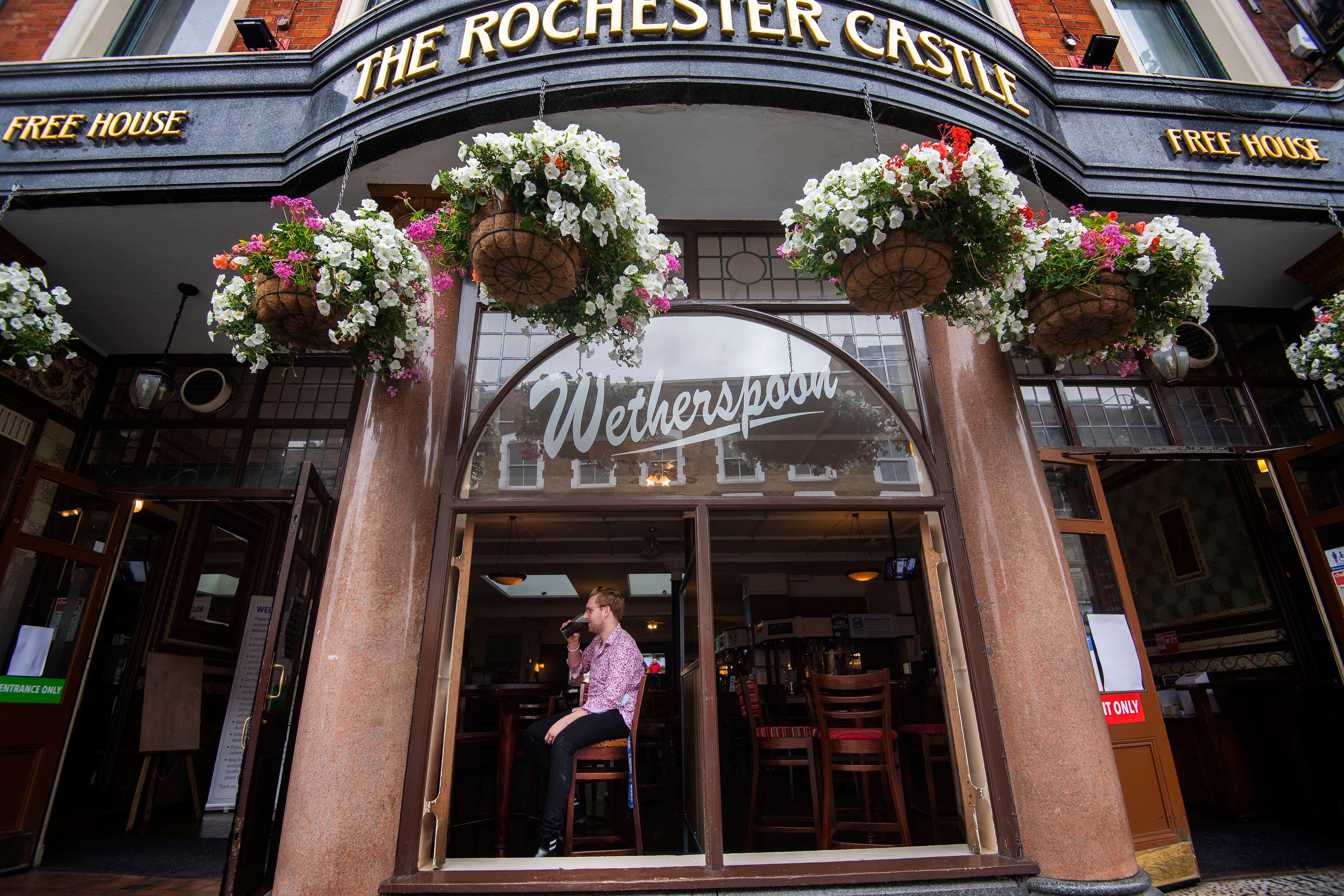Pub chain Wetherspoon reveals jump in sales as boss warns about costs
Wetherspoon now operates more than 800 pubs.

Pub chain J D Wetherspoon said that sales have risen by around £1 in every £10 in the last six months as it outperformed peers in the industry.
The business said that it had reduced the number of pubs it operates by 12 since the start of the period, amid reports that the company’s oldest remaining site could be sold.
Wetherspoons said that it had 814 pubs left, down from 826 at the end of its last financial year. It opened two new sites in London’s Euston train station and Heathrow Airport.
Earlier this week local newspaper the Hackney Gazette reported that The Rochester Castle, which has been a Wetherspoons since 1982, could be set to close.
Sales were up 10.1% over the 25 weeks leading up to last Sunday, Wetherspoons said. In that sales at the bar were up 11.8%, while food sales rose 7.9% and use of its slot and fruit machines rose 10.4%.
Chairman Sir Tim Martin re-iterated his long-standing complaint that pubs have to pay higher value added tax (VAT) than supermarkets.
“Wetherspoon, like the hospitality industry, has seen a consistent but slow recovery, following the pandemic.
“Although inflation is, in general, reducing, labour and energy costs are far higher than pre-pandemic.”
He said that if the cost of staff rises, that is much more likely to impact the pub sector than the supermarkets.
“The price of a pint in a supermarket is about £1, so a 10% increase in labour costs (which are around 10 pence per pint) necessitates a one pence increase in the selling price to cover costs.
“However, for pubs, the average selling price of a pint is around £4.50. The labour per pint is therefore around £1.35 (30% of £4.50), necessitating a 13.5 pence increase in the selling price to cover extra costs.”
“The inevitable consequence is that increased labour costs raise the differential in prices between the hospitality industry and supermarkets.”
“At the same time, pubs pay far higher VAT and business rates than supermarkets, further exacerbating the price disparity.”
Bookmark popover
Removed from bookmarks